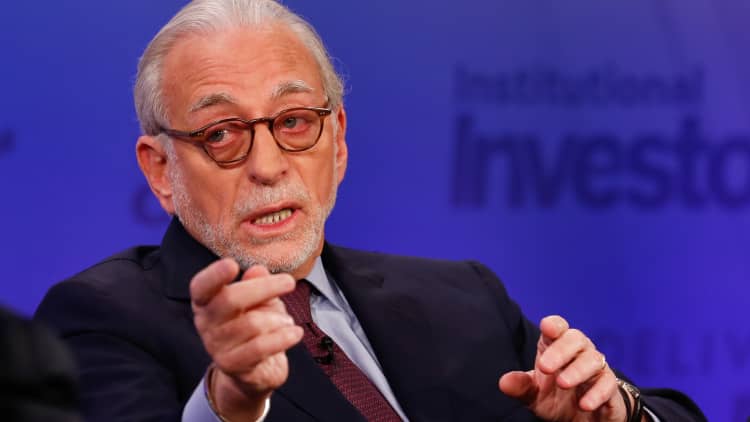
Procter & Gamble said last week it won. Nelson Peltz's Trian Fund Management said the vote was "too close to call."
What happens now?
The two sides in the most expensive proxy battle will likely descend into the "snake pit."
Not the proverbial snake pit. It's actually called the "snake pit." The term is colloquially used by proxy-fight participants to describe the process where they investigate each contested vote.
"You're talking about the end stage of an election campaign, where the parties haven't kissed and made up," said Bruce Goldfarb, founder and chief executive of Okapi Partners, a proxy-solicitation firm. "There's a little bit of venom to the process."
P&G is expected to file on Monday an 8-K describing the preliminary results announced last Tuesday at its annual shareholder meeting. The company said at the time that its slate of 11 directors had been elected and that Peltz had not received enough votes for a board seat.
Shortly afterward, Peltz said in an interview on CNBC that his numbers indicate the vote is as "close to a dead heat as possible." He added that the difference is "plus or minus 1 percent."
Snake pit stage is rare
The results haven't been certified. The tabulation process begins via IVS Associates, an independent inspector for contested elections. The firm will first come up with its own estimates, and the two sides will likely choose to move onto the review and challenge period – the snake pit.
Proxy fights rarely get to that stage. But internal and external experts say P&G will probably be one of the few this year — and certainly among the biggest companies to ever reach this stage (the other large-cap name that's frequently cited is Hewlett-Packard's takeover of Compaq Computers in 2002).
P&G has an unusually high retail proportion — about 40 percent of their shareholders are individual investors, more than four times that of the average company. Retail is more likely to submit paper cards as opposed to voting over the phone or digitally. And unlike political elections, shareholders can vote as many times as they'd like, with only the latest vote counted.
This situation is estimated to have around 200,000 paper ballots, according to two people with knowledge of the matter.
In the snake pit, IVS would mediate between Trian's proxy solicitor and outside counsel on one side and P&G's proxy solicitor and outside counsel on the other. They'll look at the ballots and study the details, one at a time. Was it signed appropriately? Are they counting the most-recent vote?
The process can take months. P&G and Trian are not expecting to have a final, certified result for eight weeks or so.
In rare situations will the recount switch the result, but it has happened. Two decades ago, investors Carl Icahn and Bennett LeBow were pushing RJR Nabisco Holdings to separate its food business from its tobacco business. The company announced that shareholders had voted against the divestiture, but then after reviewing the mail-in vote, the two investors had indeed achieved a slight majority.
Peltz has argued that regardless of the recount result, the company should put him on the board. That's unlikely, however, since P&G has already spent an estimated $35 million to keep him off. CEO David Taylor said on CNBC that he would not put Peltz on the board if he lost the proxy fight.
And if it gets to the snake-pit stage, P&G will bear the cost of that as well. It shouldn't be more than six figures though — a drop in the bucket for the most-expensive proxy fight ever.
WATCH: Billionaire investor Nelson Peltz: P&G board didn't want me because of ego



